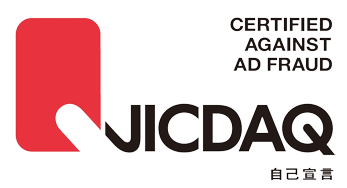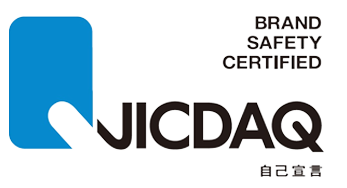Introduction
TYL Inc. operates recruitment services across animal hospitals, the pet industry, livestock, and the food sector. As a performance-based business, every successful job placement drives revenue, making efficient digital advertising essential.
But like many advertisers, TYL faced a growing problem: fraudulent clicks in search ads. The company suspected wasted budget but lacked a clear way to measure it—until a free trial of Spider AF revealed far more fraud than expected in its core search campaigns.
That trial became a turning point. Using Spider AF’s detection data, TYL established a process to claim refunds from ad platforms. The result was a net-positive ROI, with monthly refunds consistently exceeding the cost of the tool, along with renewed confidence in PPC operations.
The Challenge: Wasted Spend and Limited Options

By 2022–2023, TYL noticed a sharp decline in the quality of Google Search Partner placements. Investigations uncovered low-quality sites clearly designed to siphon advertising spend. Without a way to filter fraudulent traffic from legitimate placements, the company stopped distributing ads through Search Partners entirely.
This decision helped avoid further waste but also meant cutting off valuable partners. “There were quality placements mixed in there too,” recalls Yutaka Nomura, Head of Marketing Planning. “I remember thinking, if we could just block the fraudulent clicks, we could start again.”
At the same time, the company was aware that its pay-for-performance business model required keeping acquisition costs as low as possible. Every wasted click directly undermined growth.
Discovering Spider AF
The turning point came when Nomura attended a Spider AF seminar at a trade show. One remark stood out: ad fraud may also serve as a funding source for organized crime. What had previously felt like a cost issue now carried a wider social dimension.
Curious to see how Spider AF would perform, Nomura signed up for a free trial on the spot. The results were eye-opening. Fraudulent clicks were not limited to display ads, but were also present in TYL’s main search campaigns. For the first time, the scale of the problem was clear.
Why Spider AF Was Chosen
When it came time to evaluate solutions, TYL compared three different vendors. Spider AF ultimately stood out for three reasons:
- Detection accuracy: The trial revealed fraudulent clicks even in search ads, validating the need for countermeasures.
- Platform coverage: Unlike other providers, Spider AF supported a broad range of channels, including LINE and Microsoft Ads.
- Localized support: Japanese-language assistance offered reassurance and efficiency. As Nomura explains, “With Spider AF, we could work entirely in Japanese, and that peace of mind became the deciding factor.”
Implementation was smooth. Although configuring more than ten sites took time, Spider AF’s support team guided the process step by step. The dashboard itself was intuitive, making it easy to manage campaigns on a daily basis.
Results: From Trial to ROI

The financial impact was immediate. Using Spider AF’s detection data as evidence, TYL began submitting refund claims to platforms such as Google. Every month, refunds amounting to roughly 5–10% of ad spend are returned, far surpassing Spider AF’s monthly subscription fee.
Nomura: “Once we began submitting refund requests with Spider AF’s evidence, refunds started coming through from Google. Interestingly, the official response was always something like ‘these clicks were already excluded,’ but in reality, no refunds happened unless we applied. Taking proactive action with proof was the only way to see results.”
Beyond refunds, Spider AF also provided peace of mind. Continuous monitoring and blocking eliminated the sense of “invisible loss” that had plagued TYL’s marketing team. “Now I can see invalid audience lists building up in Google Ads,” says Nomura. “It shows me the countermeasures are working.”
While direct CPA improvements are harder to measure, since fraudulent activity constantly evolves, the ROI is undeniable. Ad fraud prevention moved from being a vague problem to a quantifiable, repeatable business benefit.
Looking Ahead
Nomura believes companies with large ad budgets stand to benefit most from Spider AF, especially in competitive sectors where CPA is high and fraud more common.
Nomura: “Any company with a large advertising budget should run the trial. In industries like recruitment, real estate, or medical aesthetics, fraudulent clicks are especially common. For businesses investing heavily in Google Ads, the refunds are a clear benefit. The returns can easily exceed the cost of the tool, so the impact is easy to see.”
Key Outcomes at a Glance
- Challenge: Fraudulent clicks forced TYL to halt Search Partner ads, wasting around 5–10% of budget.
- Discovery: A free trial of Spider AF revealed significant fraud even in core search campaigns.
- Decision Factors: Detection accuracy, broad platform coverage, and Japanese-language support.
- Results: Refunds consistently exceed the tool’s monthly fee; continuous monitoring provides confidence and transparency.
- Future: Use trial insights to help other high-CPA advertisers visualize hidden risks and turn prevention into ROI.
Conclusion
For TYL, Spider AF turned uncertainty into measurable savings. The free trial not only exposed the true scale of fraudulent clicks in search ads, it also provided the foundation for a refunds process that generates net-positive ROI each month.
“With Spider AF, we could finally visualize the fraud, prove it, and get money back,” says Nomura. “That process itself has become a real cost-saving measure.”
👉 Protect your own campaigns with a free trial of Spider AF PPC Protection.






.png)


.png)
%20(1).png)





